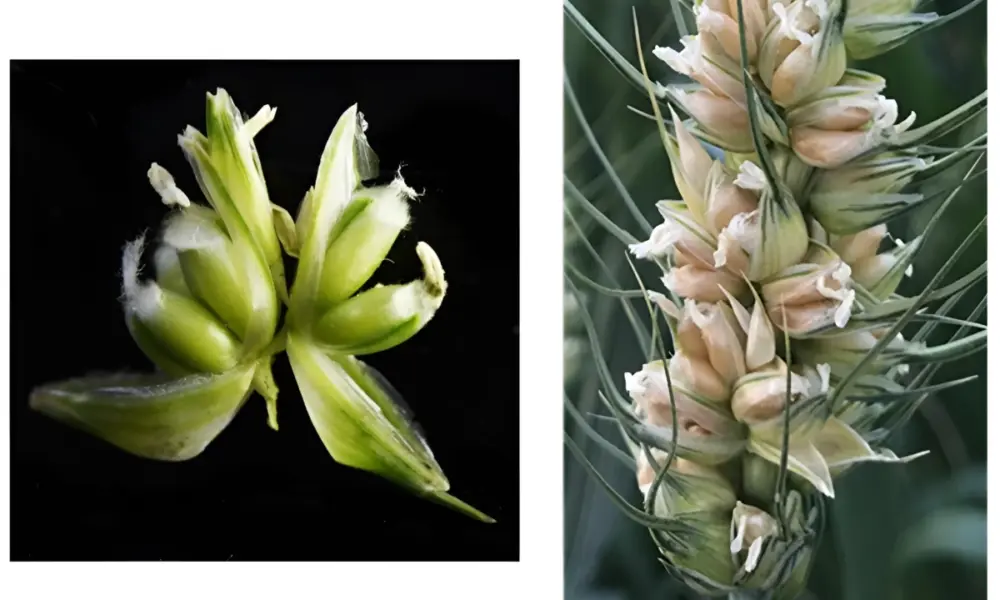Research from the University of Maryland suggests that a recent genetic breakthrough in wheat could potentially triple grain yields without the need for additional land, water, or fertilizer. This advancement centers around a rare genetic mutation in wheat known as the MOV (multi-ovary) trait, which enables each floret in a wheat plant to produce up to three grains instead of the typical single grain.
In standard wheat plants, each floret produces one ovary that results in one grain. The MOV mutation, however, allows for the development of multiple ovaries per floret, significantly increasing the potential grain output. Until now, the underlying genetic mechanism responsible for this trait was not understood.
Mapping Genetic Differences
To uncover this mechanism, researchers at the University of Maryland conducted a thorough analysis of the DNA of MOV wheat, comparing it with that of regular bread wheat. Their findings revealed that a gene known as WUSCHEL-D1 (WUS-D1), which typically remains dormant, becomes active in MOV wheat. This gene plays a crucial role in the development of additional female flower parts, including pistils and ovaries.
The activation of WUS-D1 offers a promising avenue for agricultural advancements. “Pinpointing the genetic basis of this trait offers a path for breeders to incorporate it into new wheat varieties, potentially increasing the number of grains per spike and overall yield,” stated Assoc. Prof. Vijay Tiwari, co-author of the study.
Utilizing Gene Editing Techniques
The research team is optimistic about leveraging gene editing technologies to activate WUS-D1 in cultivated wheat plants. By doing so, they aim to enhance grain production significantly. The implications of this research are vast, as higher-yielding wheat could address global food security challenges and contribute to more efficient agricultural practices.
The findings were published in a recent issue of the Proceedings of the National Academy of Sciences, marking a significant milestone in agricultural genetics. As the world grapples with the challenges of feeding a growing population, innovations like this could play a critical role in sustainable farming.
This genetic discovery not only represents a leap forward in wheat cultivation but also highlights the potential of modern science to tackle pressing global issues. The ability to produce more grain from existing crops could transform agricultural landscapes and improve food availability worldwide.







